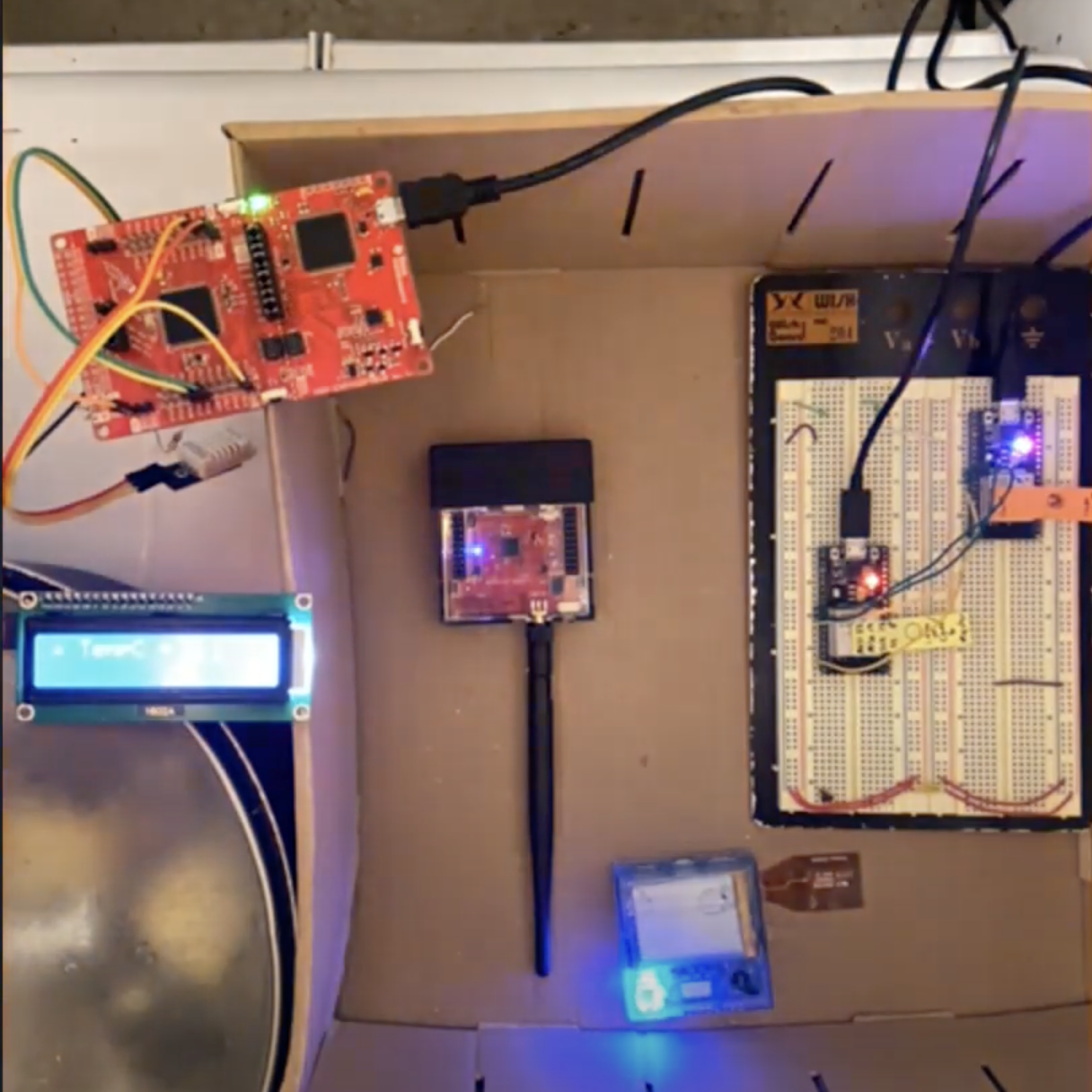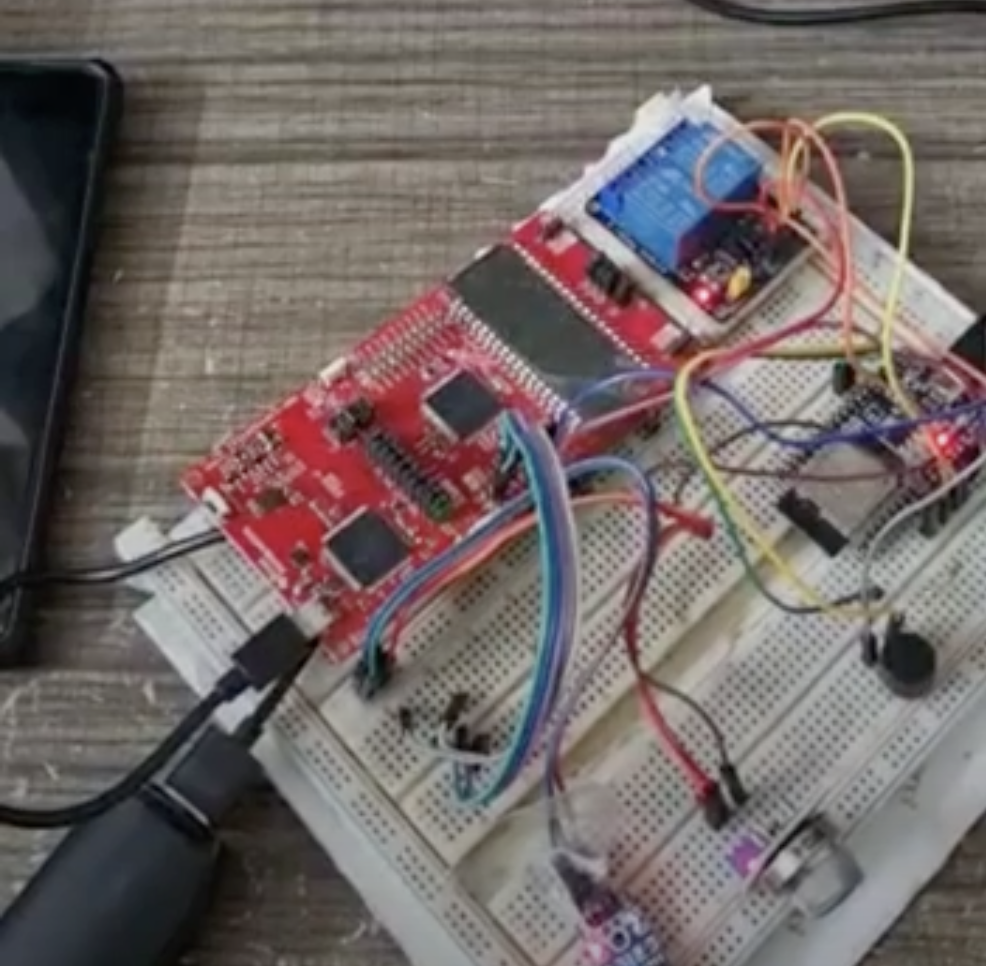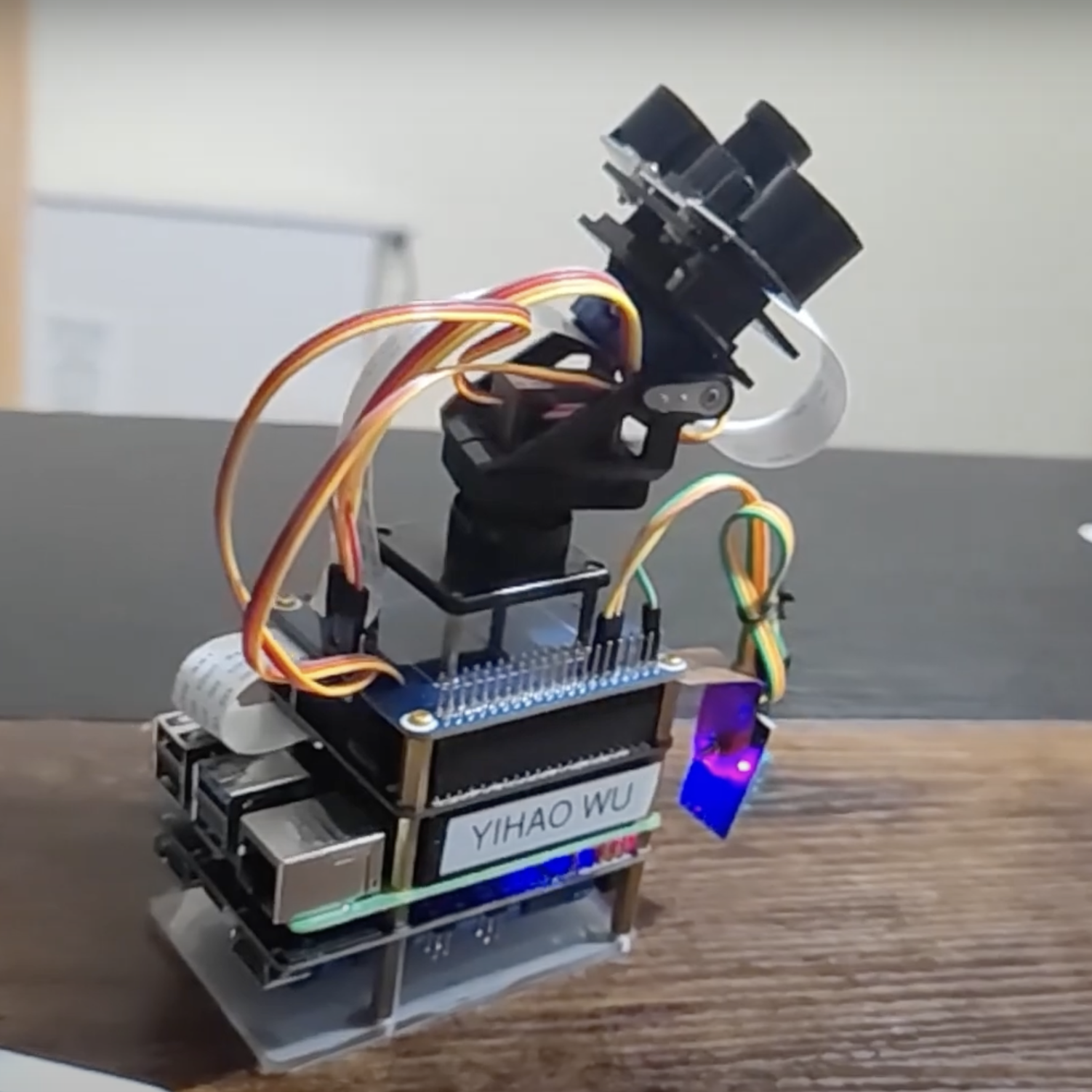The second annual student Internet of Things (IoT) Design Competition recently wrapped up after a busy semester of competition. The international competition, hosted by the IoT Students Club at University of Florida, is sponsored by Texas Instruments, Microsoft, and the Warren B. Nelms Institute for the Connected World.
“IoT and its convergence with AI can help us solve some of the global problems that we are facing now which we could not solve before,” said Dr. Swarup Bhunia, Director of the Warren B. Nelms Institute and professor in the Department of Electrical and Computer Engineering. “So the goal for this competition was to encourage students to design customized IoT solutions for different application domains. And then with that goal, we invited the students to take up the challenge and participate in this competition to help in solving problems in unprecedented ways. And we have quite a few exciting projects this year.”
New this year, teams could choose to enter in either a hardware or software category to create their IoT project:
- Hardware Prototyping – Create your own IoT system with any IoT devices (smart and connected endpoint device) that targets a specific application that is an IoT-enabled technique.
- Hardware Emulation via Software – Emulate an IoT System using IoT Online testbeds to target a specific application that is an IoT-enabled technique.
A total of 25 teams from around the globe took part, competing for over $6,000 in cash and prizes. Each team was provided with a starter kit. Hardware Prototyping teams received a Texas Instruments microcontroller, wireless module (sponsored by Texas Instruments), and battery. Hardware Emulation via Software teams were provided with access to Microsoft Azure (sponsored by Microsoft.)

With their project, Fridgigators, University of Florida students David Dexter and Kyle Morman won first place in the competition. They created a smart refrigerator system which addressed some of the pitfalls with current IoT-based refrigerators. Their device has the ability to sense temperature, humidity, and more, plus connect between multiple refrigerators.

Moumita Kabir Ananna, a student at Southeast University in Bangladesh, won second place with their project, IoT-Based Fire Control and Notification System: A Smart Solution for Improved Safety. This system is equipped with sensors that can detect the presence of fire and smoke, and then send a notification to the nearest firefighters and the house owner. In addition, the system can automatically turn off the power supply, turn on the exhaust fan and start sounding an alarm to alert people to the danger.

Third place went to University of Florida teammates Yihao Wu, Tahmid Kaisar, and Yongzhe Zhang for their project, Low-cost human behavior monitoring system based on infrared array sensor. They created a system using low-cost infrared array sensor and embedded computing platform combined with deep neural network data analysis model, to study the human motion monitoring system with user privacy protection and non-contact, and provide solutions for round-the-clock monitoring in smart elderly health monitoring applications.
This year, projects were also awarded additional prizes for other award categories. The Best Presentation Award was given to “Fridgigators”. The Most Eco-Friendly Award was given to Team Smashers for “Portable BMI Calculator”. The Best Commercial Potential Award was given to Team Eniac_71 for “IoT-Based Fire Control and Notification System: A Smart Solution for Improved Safety”. The Best Hardware Emulation Award was given to Team Tech Phantoms for “IoT Based Water Monitoring”.
The judging panel included four industry and academia professionals with diverse experience and knowledge of IoT: Rajat Subhra Chakraborty, Professor, CSE at IIT Kharagpur; Mark Easley, University Marketing Manager at Texas Instruments; Vaishnavi Ranganathan, Senior Researcher at Microsoft; and Shuo Yang, Software Engineer at TikTok.
“This year’s design competition had participating teams from all over the world. It was an incredible experience to witness how the teams devised solutions to global problems using our starter kits and IoT,” said Aritra Dasgupta, Student Chair of the IoT Design Competition.
The competition phase lasted throughout the Fall 2022 semester and culminated in a closing ceremony on March 10, 2023. The projects were scored on criteria such as operability of the device, novelty and creativity of the application, complexity of the design, and effective use of IoT technology.
The student IoT Design Competition is an annual event. The next competition will be starting June 2023. Check the IoT Students Club Event Page for the latest updates.
